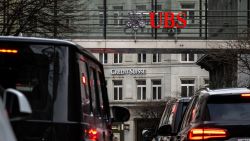Foot Locker is planning to shut 400 stores by 2026 as it strives to become more relevant to younger shoppers by relaunching its retail brands, introducing “experiential” new store concepts and simplifying its operations by closing underperforming mall-based stores.
The stores slotted for closing across North America account for nearly 10% of Foot Locker’s total sales, said Anthony Aversa, Foot Locker senior vice president of store development.
Aversa disclosed the details to analysts during the company’s investor day on Monday.
Under its corporate umbrella, Foot Locker operates more than 3,000 Foot Locker, Kids Footlocker, Champs Sports, WSS and atmos stores globally.
Included in the store trimming are 125 underperforming Champs Sports stores, which will be closed this year.
The “reset,” as company executives describe it to analysts, comes amid softer sales. Foot Locker reported fourth quarter sales Monday that eased 0.3% versus a year ago. The retailer also forecast total sales to drop 3.5% to 5.5% in 2023.
Foot Locker (FL) noted that among its portfolio of brands, its non-Nike branded product sales grew mid-single digits, while the Nike mix was down — though “only slightly.” But Nike is Foot Locker (FL)’s largest brand partner and will remain so, executives said. The company is looking to revitalize its Nike partnership with a product concept celebrating Foot Locker (FL)’s 50-year anniversary in 2024.
“Nike will continue to lead our brand portfolio and be 55% to 60% of our mix,” said Chris Santaella, Foot Locker’s chief merchandising officer.
Courting younger and diverse shoppers
The new store concept and selling strategy — called the “Lace Up”— will focus on specific segments of sneaker shoppers.
They include the sneaker maven, or sneaker-obsessed shoppers who represent themselves through their shoes; the fashion-forward expressionist who want to look and feel cool and rely on their sneakers to deliver that feeling; the athlete searching for high performance sneakers; shoppers who prioritize quality and comfort; and, finally, the deal-hunters.
“These positionings will drive everything we do, including real estate site selection, product merchandising, omni marketing and, of course, great customer service,” said Bracken.
Foot Locker CEO Mary Dillon told analysts she thinks hybrid work is here to stay and it’s fueling the strength and longevity in casual dressing.
“We are not going back to less comfort in our lives. I can tell you that,” she said.
She said younger and more diverse customers are a strategic advantage for the company. “These are the fastest-growing consumer segments in the US and are rapidly expanding in their purchase power,” she said. “If you don’t win with young diverse consumers in this category, you don’t win in the long run.”
Aversa said Foot Locker plans to attract both older, loyal shoppers and new and younger customers in a few ways.
“We’ll be scaling new concepts with bigger footprints to offer more engaging experiences with a broader product assortment,” he said, adding that the retailer will have more of its stores outside of malls.
The reduction in real estate, he said, will be approximately a 10% reduction in store count through 2026 to 2,400 stores.
“But we will increase our square footage by 10% to over 14.5 million square feet as we open up larger, more experiential expressions of our brands with a wider product assortment. New formats will surpass 400 locations,” said Aversa.

























